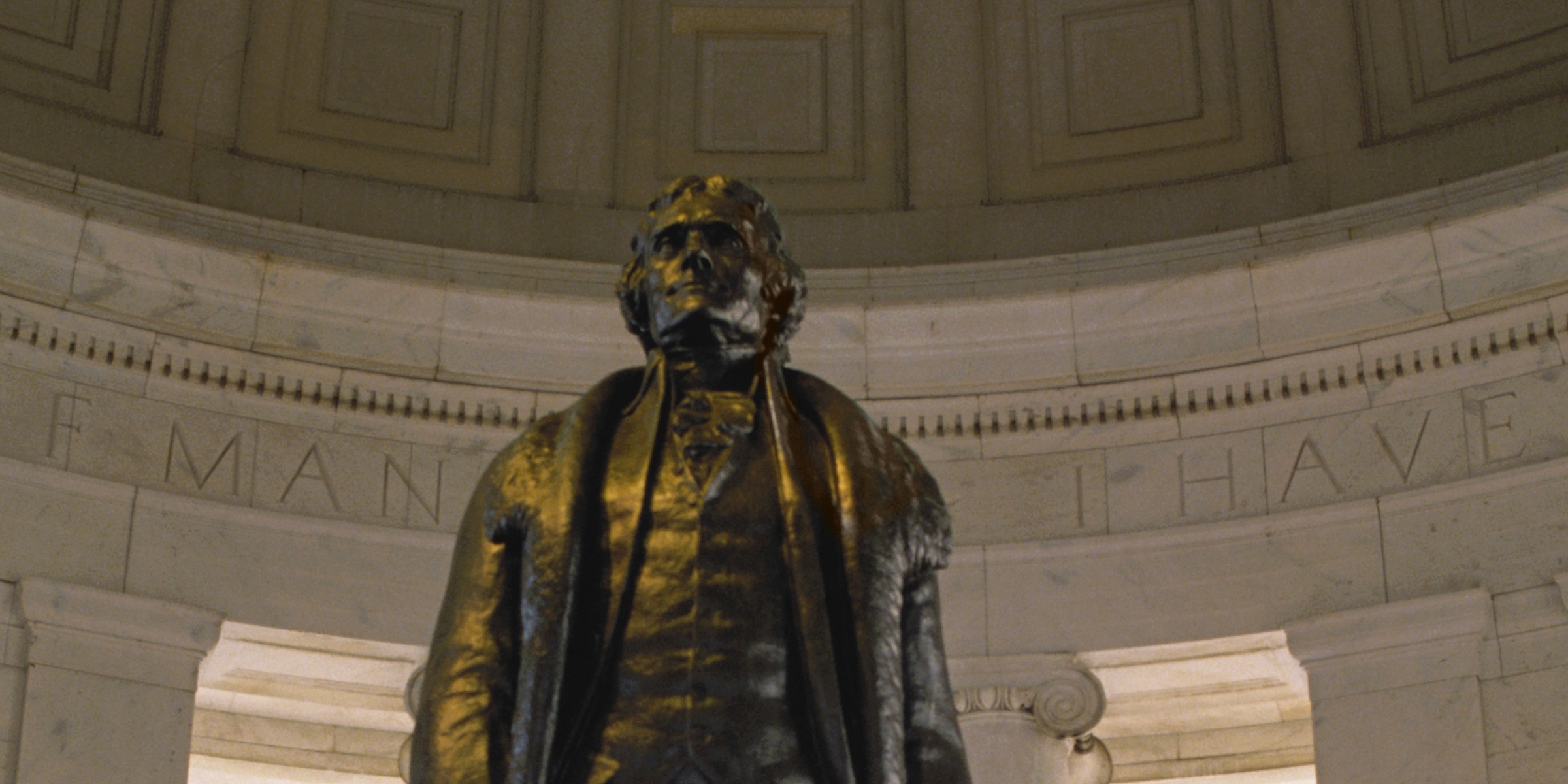Several years ago, a children’s animated film on the life of Christ jazzed up a bit the encounter between Jesus and the religious leaders over Caesar’s coin. In this version, after Jesus pronounced “Render to Caesar the things that are Caesar’s, and to God the things that are God’s”, he threw the coin to the floor of the Temple. As it rolled across the stone, the film pictured Judas chasing after the coin, to pocket Caesar’s image for himself. A filmmaker’s imagination might try to recreate the tension of that first-century moment, but it cannot do justice to the endless controversies that hinge on precisely what Jesus meant when he distinguished the reigns of Caesar and God.
And the debate over church/state separation has never been more pronounced than the present. The controversy over Alabama Supreme Court Chief Justice Roy Moore’s Ten Commandments monument enraged the cultural left-and divided the evangelical right. The Ninth Circuit Court of Appeals has suggested that “under God” in the Pledge of Allegiance violates the establishment clause. Local municipalities find themselves charged with violating the “wall” of separation when they seek to free impoverished students from failing public schools through voucher programs. The people of Afghanistan and Iraq will soon be working through a constitutional process that is sure to include the question of whether to acknowledge Islam.
A few days ago, the Henry Institute convened a symposium to debate a Baptist understanding of church/state separation. The debate can be heard via streaming audio here on the Henry Institute site. All the panelists affirmed some form of separation between the church and the state-it is defining the meaning of “separation” that stirred up disagreement. Such has long been the case. The symposium contributed most to the ongoing discussion, however, in that the panelists moved beyond sloganeering to a serious attempt to fashion a theological foundation for understanding the church/state dynamic. This is the way forward. Conservatives can’t rely on 1960s-era bumper stickers about “kicking God out of the schools.” The issues are more complex than that. Liberals can’t continue to quote Thomas Jefferson’s “wall” metaphor as though the Founders had in mind the secularized public square envisioned by Americans United for Church and State. As University of Chicago legal scholar Philip Hamburger has demonstrated, Jefferson’s “wall” was reinterpreted through the interpretive grid of revisionist 20th century jurisprudence, much of it informed by an ugly anti-Catholic, anti-immigrant agenda. The way forward on this issue is instead in formulating a theology of the church and a theology of the state.
Before conservative evangelicals can engage the issue of church/state separation, we must regain some convictions about the church. The anemic ecclesiology of American evangelicalism is a scandal to the gospel. And yet, the definition and mission of the church is ground zero in this debate. Strict separation advocates for too long have co-opted early Baptist pioneers for religious liberty such as John Leland and Isaac Backus. Leland, Backus, and their colleagues were not fighting for secularism against a hostile religious right. They were the religious right-arguing against persecution by the established churches on the basis of a commitment to biblical inerrancy and confessional integrity. Thus, the “no establishment” fervor of the early Baptists was based on theological arguments about the new covenant, the relationship between the Israelite theocracy and the new covenant assembly, and the nature of faith itself as voluntary and non-coerced. These are precisely the kinds of discussions contemporary evangelicals must settle before we engage the particular public policy implications of various proposals.
Likewise, conservative evangelicals need to think through a theology of the role of the state. That is not as simple as it might seem at first glance. After all, the New Testament speaks both of the Romans 13 state, which is ordained by the purposes of God, and the Revelation 13 state, which is ordered by the designs of antichrist. How far must Christians submit to the state before we conclude that Romans 13 has morphed into Revelation 13? While the twentieth century saw the church/state debate focused primarily on establishment, it seems that the twenty-first century debate will be focused much more on free exercise. Can the state label the preaching of Romans 1 “hate speech”? Can the state require evangelical and Roman Catholic churches to perform same-sex civil unions? Can the state outlaw homeschooling? Some Christians around the globe are already facing these questions. Our children and grandchildren almost certainly will face similar dilemmas. Do we have a biblical theology adequate to answer such questions?
This debate is important to the future of the Republic. A judiciary that misinterprets the Constitution to posit a secularized state hostile to a religious citizenry is dangerous. But, more importantly, this debate is important to the mission of the church. The apostle Paul reminded young Timothy to pray for “kings and all who are in high positions” precisely so that the churches could in tranquility and quietness point men and women to the God “who desires all people to be saved and to come to the knowledge of the truth” (1 Tim
2:2-4, ESV).







